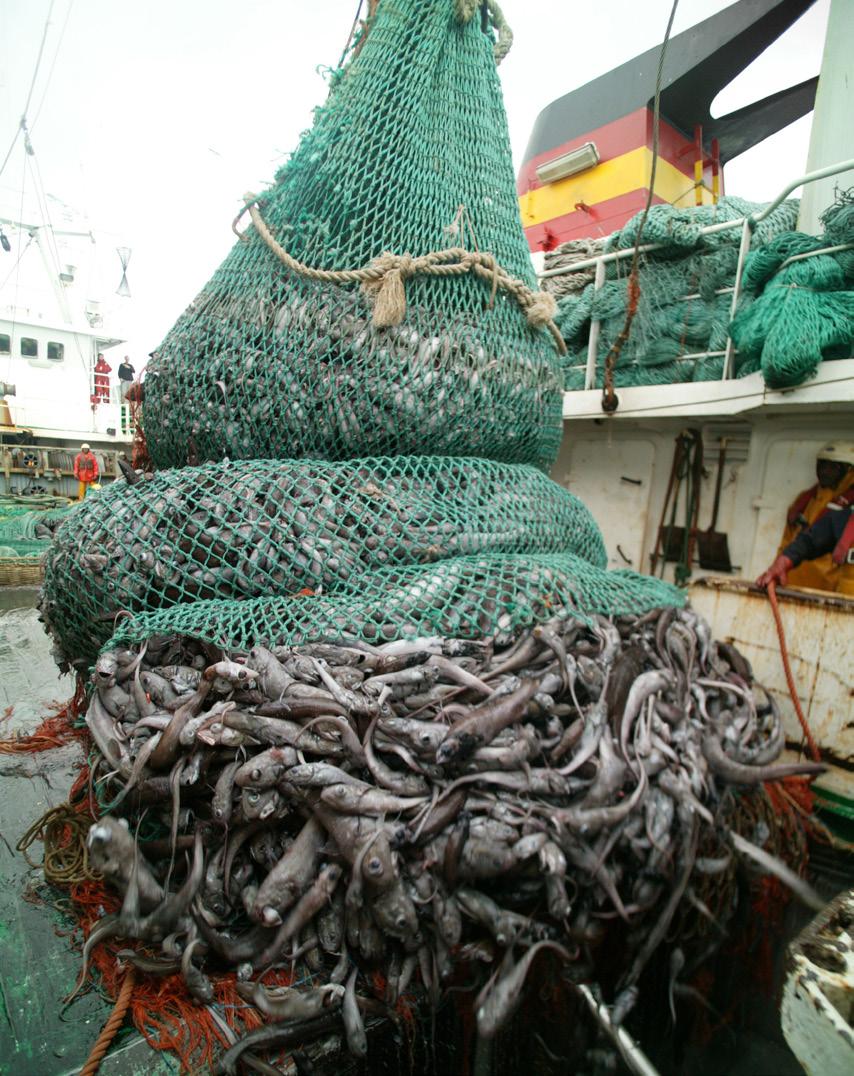THE WILD WEST ATLANTIC CONTEXT Fishing in a regulatory vacuum This area of the south Atlantic suffers from a regulatory vacuum. Currently the only relevant regional fisheries management organisation operating in this area is the International Commission for the Conservation of Atlantic Tunas (ICCAT). However, ICCAT only manages fisheries targeting tuna and tuna-like species, as well as sharks caught by tuna fleets, so other important fisheries in the area targeting species like squid, hake or Patagonian toothfish, are not covered by an international body. Further, ICCAT has come under sustained criticism for continuing to ignore scientific recommendations with regards to catch limits, and for its continued failure to ensure the conservation of sharks, increasingly targeted by tuna longliners. It currently imposes no catch limits for sharks, despite the fact that many vessels registered with ICCAT are catching far more sharks than they do tuna or tuna-like species6.
Discarded bycatch from a bottom-trawler in the North Atlantic © Greenpeace / Kate Davison
The maps below taken from the Food and Agricultural Organization of the United Nations clearly demonstrate this regulatory vacuum. The Global Ocean Treaty currently being negotiated at the UN will go some way towards plugging this gap in governance, ensuring that human activities anywhere in the high seas are strictly assessed and effectively managed. The Treaty must provide the tools to protect important areas such as those containing vulnerable marine ecosystems, spawning and feeding grounds, or whales migratory routes. Marine ecosystems and threatened populations of marine mammals, sharks and other migratory species or nonregulated commercially caught species, must be afforded comprehensive protection from the cumulative impacts of human activities, climate change and pollution. Further to the issues surrounding the lack of regulation in the Blue Hole, there are also cases of these vessels entering neighbouring Argentine waters illegally by turning off their position reporting systems to fish in the Argentine Exclusive Economic Zone (EEZ). By turning off the Automatic Identification System (AIS) they avoid Argentina’s maritime authority patrol.7,8 The Argentine Coast Guard has been able to register around 76 vessels that crossed into the Argentine EEZ to illegally fish from the 1960s to the present day, sometimes resulting in the Argentinean Navy firing upon infractors, vessel arrests and fines9. There are also anecdotal reports of many more incursions. A bottom trawler bringing in their catch © Greenpeace / Kate Davison
6 THE WILD WEST ATLANTIC: The impact of overfishing in the South-West Atlantic Ocean


